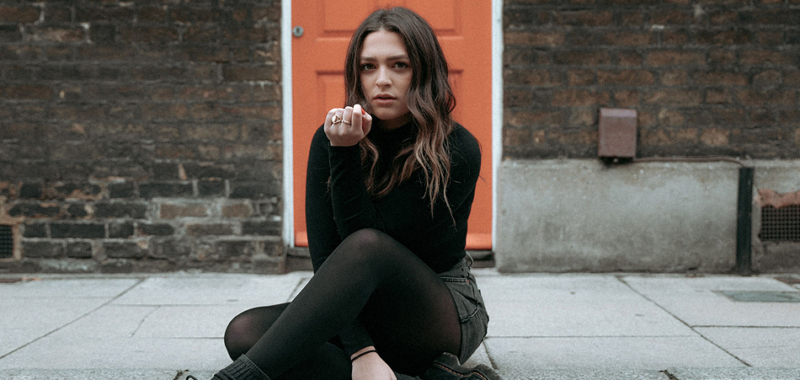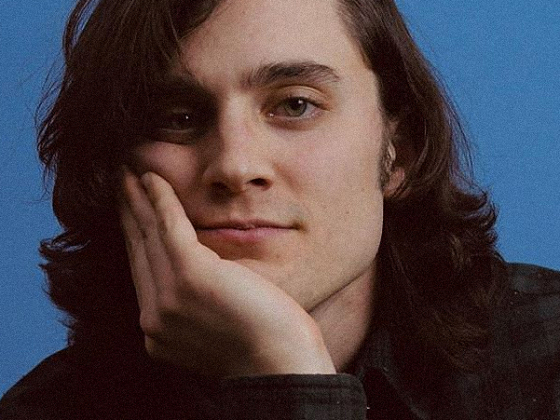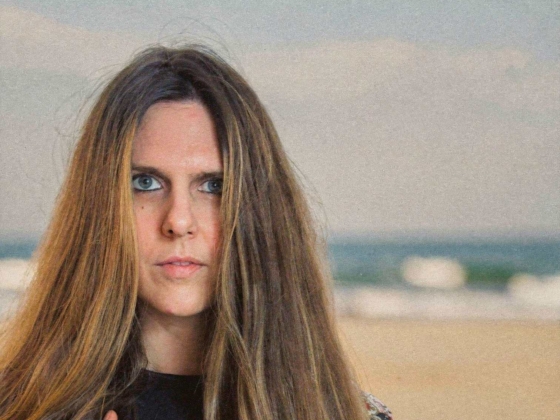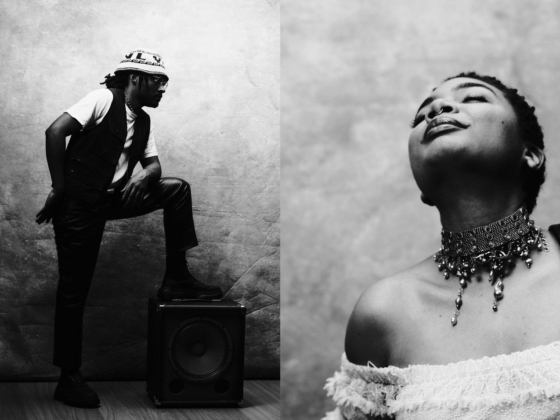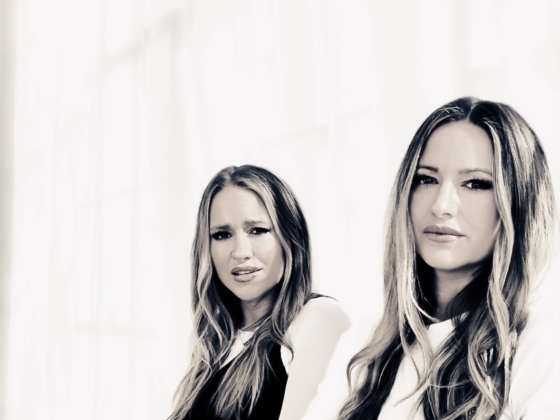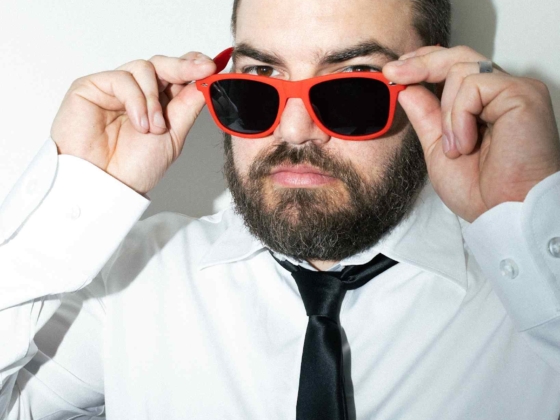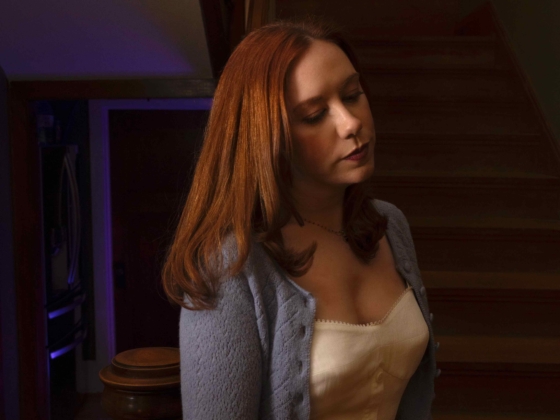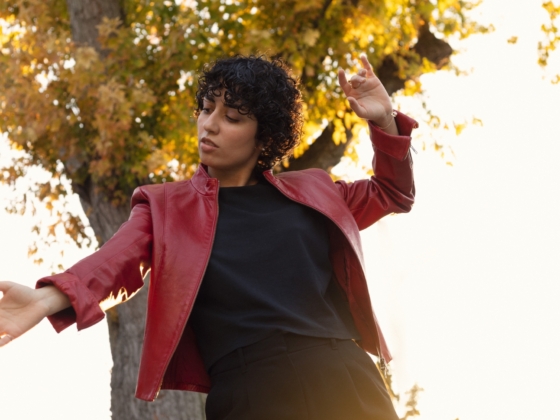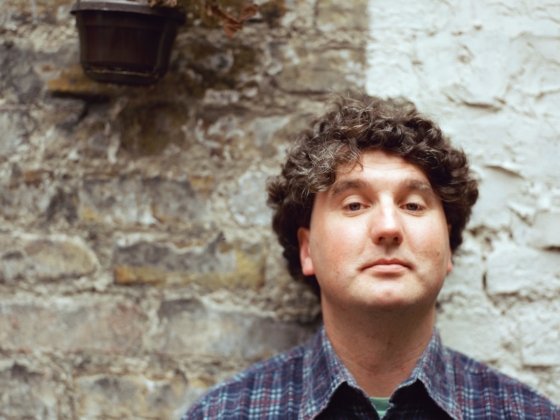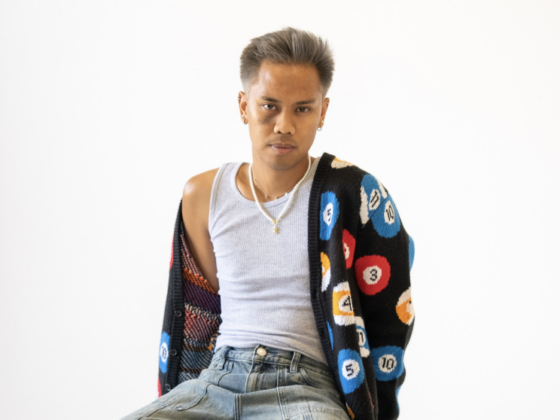I’m on a train chugging along a lake, tearing up while staring out the window on a cold November afternoon. The reason? I’m leaving an old friend and Nashville singer/songwriter Charli Adams is singing into my headphones. Her singular voice is tugging at my heartstrings. I realize that her music has a certain nostalgic quality, and it transports me back to my youth and the friend with whom I just parted.
At seventeen, Adams moved unaccompanied to a house in Nashville, pressed play on a CD player in her car, and began driving around for hours, conducting research. This is the picture she paints for me over the phone of her first years in music. She’s calling me from that same house, and it's the day her roommate is slated to move out. Adams is starting to build her own studio in the newly vacated space. “It’s a transition,” she tells me. Fittingly for the close of a chapter, Adams' song “Backseat” reflects on past moments. “I am so moved by nostalgia” she says. “It’s like the universal emotion.” The song opens with an 80’s inspired sound, something Adams feels captures that wistful feeling so well.
Re-released today along with “Backseat” are songs “10th Avenue”, “Bad Caffeine”, and “Black Tee Shirt", all of which are included on the EP. Each tune is full of symbols and details from what Adams explains is an autobiographical creative process. Take “Black Tee Shirt” for example: she tells me this song came to her after a night of standing in a satin dress in the rain. She wrote “10th Avenue” on 10th Avenue in New York, and yes, the corner store from the lyric actually exists. Once arriving in Music City, Adams found her community. She marks this as the beginning of creating Good At Being Young and finding inspiration for songs. “I was in the backseat of a car with my friends who were talking shit. It was this metaphor for everyone growing up and trying to prove themselves and I was so frustrated with that. I was like 'let’s turn up the music and enjoy life like when we were younger.' I went home and wrote 'Backseat' that night.”
Before Nashville, there was Gulf Shores, Alabama. The beach town is where a 12-year-old Adams told her mom sports weren't for her anymore and picked up an acoustic guitar. “I kind of felt like a black sheep”, she says when I ask her about her hometown. "In Nashville, there was a lot of questioning and growing up and realizing that maybe your surroundings at home weren’t the whole truth. You get shaken up,” she explains, adding, “now I can be whatever I want to be.” Coming from a non-musical family, Adams’ mom drove her to Nashville, aware of its rich musical history. Flash forward to Adams researching music by listening to CD's in her car. I ask her how that went. “I accidentally drove all the way to Memphis one time listening to Bon Iver’s 22, A Million,” she admits. And honestly, we've all been there.
For Adams, songwriting allows her freedom to express herself in the most honest form. “What was supposed to be a three track EP had ten tracks which we consolidated down to my favourite six.” Those six songs are all about “retrieving that nostalgia and those emotions you felt as a kid. Recognizing the bullshit around you, tapping back into that dreamy state and feeling.” We talk at length about songs as a cinematic journey and that dreamy sensation. The idea of youth and freedom surface in “Backseat”. For the music video, Adams traveled to London and arguably risked her life to capture this visual. “I wanted it to be symbolic” she says after I ask about the video, which takes place on a boat in London. “The video takes a spin on the backseat of a car but on a backseat of a canal boat.” She laughs as she tells me about doing parkour for the canal shots. “They were filming from the bridge and I would dance as long as I could before we would [hypothetically] hit the bridge, so I either had to jump down a twelve-foot gap or lie down and squeeze myself between the bridge and the boat.” Adams shows that it’s important not to be too concerned with your surroundings, to continue to skateboard indoors, dance on boats, or do whatever you do.
As our chat comes to an end, I understand why I get emotional listening to Charli's music. I’ve never been to New York City, but I still hear my experiences reflected within her lyrics. The combination of Adams' soulful voice, familiar imagery, and vintage-inspired sounds have created this mini-movie in my mind, along Lake Ontario on a Thursday. I could see myself listening and driving hours to city limits without realizing it—that’s the power Charli Adams has found. In a quest to capture the nostalgia of her own era, she has connected to the lives of her listeners too. Isn’t that the point of music?
Good At Being Young drops January 2020.
Connect with Charli Adams: Facebook | Instagram | Twitter | Spotify

